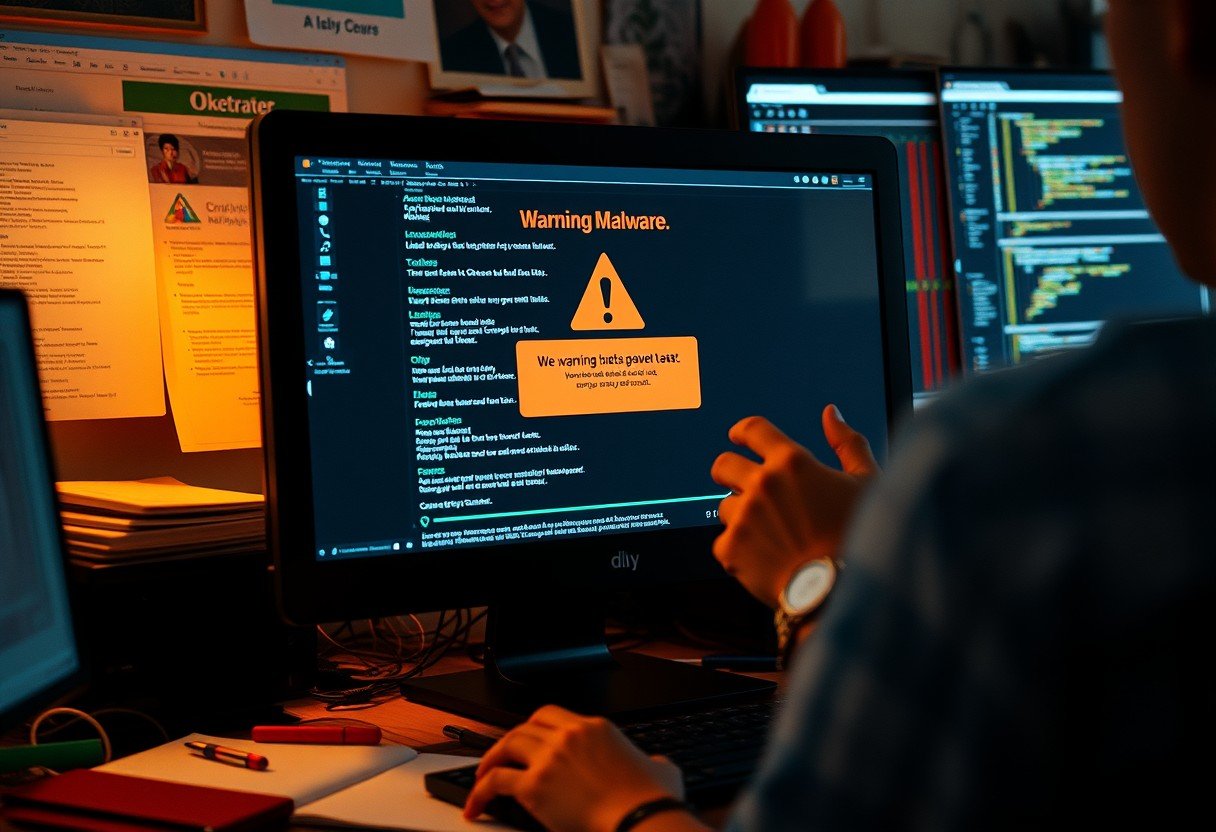With businesses in every sector relying on technology, the need to protect data has never been greater. This has made cybersecurity an exciting and stable career path for many. If you’re interested in this field, you’re likely wondering what it takes to get started and whether learning cybersecurity is a difficult journey. This guide breaks down what you can expect when starting your education in this vital industry.
How Difficult is Learning Cybersecurity Really?
Like any specialized field, learning cybersecurity requires dedication and effort. However, it is not impossible and can be easier to start than other technical fields because it doesn’t rely heavily on advanced mathematics. The key to success is having strong problem-solving skills and a genuine interest in technology.
The biggest challenge in cybersecurity isn’t learning the basics, but keeping up with them. The digital world is always changing, with new threats and technologies emerging constantly. To stay effective and competitive in your career, you must commit to continuous learning.
If you enjoy solving puzzles and are passionate about staying on top of new trends, you will find the process of learning cybersecurity to be more engaging than difficult. It’s a field that rewards curiosity and persistence.
What Skills Do You Need to Succeed?
While technical knowledge is important, a successful cybersecurity professional needs a mix of hard and soft skills. You don’t need to be an expert in everything from day one, but developing these areas will help you build a strong foundation for your career.
Many aspiring professionals focus only on the technical side, but communication and critical thinking are just as crucial when you’re working on a team to protect a company’s assets.
Here are some of the most important skills:
- Problem-Solving: At its core, cybersecurity is about identifying problems (vulnerabilities) and finding creative solutions to fix them before they can be exploited.
- Technical Foundation: You need a solid understanding of computer networks, operating systems, and basic IT infrastructure. This is the bedrock upon which all other security knowledge is built.
- Attention to Detail: Overlooking a small misconfiguration or a single line of suspicious code can lead to a major security breach. Being meticulous is non-negotiable.
Understanding the Learning Timeframes
Learning cybersecurity is a marathon, not a sprint. Unlike some skills that can be picked up in a few weeks, becoming job-ready in security takes time. You cannot fully grasp the essential concepts in just three months. The exact timeline depends heavily on your background and the educational path you choose.
Someone with a background in IT or networking might learn faster than a complete beginner. Similarly, an immersive bootcamp will have a different timeline than a traditional university degree.
Here is a general comparison of common learning paths:
| Learning Path | Average Time to Job-Ready | Best For |
| University Degree (Bachelor’s) | 4-5 Years | Individuals seeking a traditional, comprehensive education and a formal degree. |
| Cybersecurity Bootcamp | 6-12 Months | People who want an intensive, fast-paced program focused on practical skills. |
| Self-Study & Certifications | 2+ Years | Self-motivated learners who prefer a flexible, low-cost approach. |
The Challenge of Coding in Cybersecurity
One of the most complex parts of cybersecurity can be its relationship with programming. While not every security job is code-heavy, understanding it is a major advantage. A security analyst needs to do more than just write code; they need to think like an attacker.
This means you must understand how to read code to find weaknesses, know how it can be manipulated, and figure out how to build defenses to prevent infiltration. This multi-faceted understanding of code is often considered the most difficult aspect for newcomers.
Are Cybersecurity Jobs in High Demand?
Yes, finding a job after learning cybersecurity is generally not difficult. The demand for skilled security professionals far outweighs the current supply. According to the U.S. Bureau of Labor Statistics, employment for information security analysts is projected to grow 32 percent from 2022 to 2032, much faster than the average for all occupations.
This high demand exists across nearly every industry you can think of.
- Finance and Banking
- Healthcare
- Government and Defense
- Retail and E-commerce
- Manufacturing
Because data is a valuable asset for every modern business, the need for people to protect it is universal. This creates enormous and varied job opportunities for those with the right skills.
Is a Cybersecurity Career Worth It?
For those with a genuine interest in technology and a desire for a challenging career, learning cybersecurity is absolutely worth it. While you will face obstacles, the journey is incredibly rewarding, both personally and financially.
Cybersecurity professionals are well-compensated for their specialized skills. It’s a field where you can build a stable and lucrative career while doing meaningful work that protects businesses and individuals from digital threats. With the right mindset and guidance, you can find great success.
Frequently Asked Questions about Learning Cybersecurity
Do I need to be good at math for cybersecurity?
No, you do not need advanced math skills for most cybersecurity roles. A basic understanding of logic and arithmetic is usually sufficient. The field relies more on problem-solving, analytical thinking, and technical knowledge.
Is programming essential for every cybersecurity job?
While understanding programming concepts is extremely helpful and required for some roles like security engineering, it is not a strict requirement for all positions. Many entry-level jobs in areas like security analysis or compliance focus more on tools, policies, and network monitoring.
What is the most challenging part of a cybersecurity career?
The most challenging aspect is the need for continuous learning. The threat landscape is constantly evolving, so professionals must always be updating their skills and knowledge to stay ahead of cybercriminals.
Can I learn cybersecurity on my own without a degree?
Yes, it is possible to learn cybersecurity through self-study, online courses, and certifications. It requires a lot of discipline and motivation, but many successful professionals in the field are self-taught.
What kind of salary can I expect in cybersecurity?
Salaries in cybersecurity are very competitive and vary by role, experience, and location. Entry-level positions like a Security Analyst often have strong starting salaries, with significant potential for growth as you gain experience and specialize.








Leave a Comment